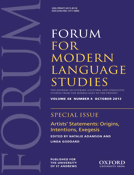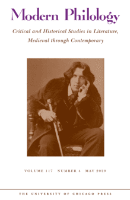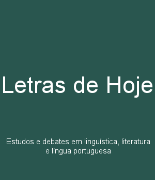
Anuari de Filologia-Llengues i Literaturas Modernas
Scope & Guideline
Connecting scholars through innovative research in philology.
Introduction
Aims and Scopes
- Interdisciplinary Studies in Language and Literature:
The journal encourages research that explores the connections between various languages and their literatures, often highlighting comparative analysis and translation studies. - Cultural and Literary Analysis:
A significant focus is on cultural narratives and their representation in literature, particularly how literature reflects and shapes societal issues. - Language Teaching Methodologies:
The journal also addresses pedagogical approaches, specifically in the context of teaching foreign languages, integrating didactic methods to enhance communication skills. - Translation Studies:
Exploration of translation practices, particularly in the context of lesser-studied languages and literatures, is a prominent theme, indicating a commitment to linguistic diversity. - Focus on Contemporary Issues:
Many articles tackle contemporary global issues, such as displacement, identity, and cultural transgression, reflecting the journal's engagement with current societal debates.
Trending and Emerging
- Cultural Representation and Identity:
A growing number of articles focus on how literature represents cultural identities and experiences, particularly in the context of diaspora and displacement, emphasizing the relevance of these themes in today's global society. - Translation and Cross-Cultural Exchange:
There is an increased focus on the translation of works from minority languages into major languages, reflecting a commitment to promoting cross-cultural understanding and the importance of diverse literary voices. - Interdisciplinary Approaches to Language Teaching:
Emerging methodologies that integrate cultural studies and communicative competence into language teaching are becoming more prevalent, indicating a trend towards holistic educational practices. - Children's Literature and Social Issues:
Recent interest in children's literature as a medium for addressing social issues, such as war and identity, demonstrates a trend towards using literature as a tool for social commentary and education. - Exploration of Digital and Visual Literacies:
There is a nascent interest in the interplay between textual and visual elements in contemporary literature and media, reflecting the changing landscape of literacy in the digital age.
Declining or Waning
- Historical Literary Analysis:
There appears to be a waning interest in purely historical literary analyses, as more recent papers tend to focus on contemporary and interdisciplinary topics rather than traditional literary criticism. - Regional Literary Studies:
Research specifically focused on regional literatures, particularly those outside of prominent Western narratives, is less frequently represented, suggesting a possible shift toward broader thematic concerns. - Traditional Linguistic Theories:
There is a noticeable decline in papers that engage with traditional linguistic theories, with a shift towards practical applications and modern linguistic approaches in language teaching.
Similar Journals

FORUM FOR MODERN LANGUAGE STUDIES
Connecting Scholars through Language and Literary ExplorationFORUM FOR MODERN LANGUAGE STUDIES is a prestigious academic journal published by Oxford University Press that has been serving the fields of literature and linguistics since its inception in 1965. This journal, with an ISSN of 0015-8518 and an E-ISSN of 1471-6860, plays a crucial role in advancing scholarly discourse on modern language studies, including literature and literary theory. With an impactful presence in both the linguistic and literary domains, it has been recognized in 2023 with a category ranking of Q2 in Literature and Literary Theory and Q3 in Linguistics and Language. It stands out in the competitive landscape, holding a notable position within Scopus rankings, including a 70th percentile ranking in Literature & Literary Theory. While the journal currently does not offer open access options, it remains a vital resource for researchers, educators, and students passionate about the transformative power of language and literature. Its commitment to quality research and robust academic discussion underscores its importance, making it a key platform for those aiming to contribute to modern language scholarship.

LINGUA E STILE
Connecting Disciplines: Where Linguistics Meets PhilosophyLINGUA E STILE, published by SOC ED IL MULINO, is a distinguished academic journal based in Italy that delves into the intricate realms of linguistics, literature, and philosophy. With an ISSN of 0024-385X, this journal has been a vital platform for scholarly discourse since its inception, covering a broad spectrum of topics from linguistic theory to literary analysis. Although it currently holds a Q4 category ranking in 2023 across multiple disciplines—specifically in Linguistics and Language, Literature and Literary Theory, and Philosophy—it remains committed to fostering insightful contributions that challenge and expand conventional understanding in these fields. While it does not offer open access, the journal diligently focuses on publishing high-quality research that appeals to academics, professionals, and students alike. With the convergence of multi-disciplinary approaches, LINGUA E STILE is positioned to engage with contemporary debates and developments, enriching the academic landscape from its base in Bologna, Italy, and inviting contributions that exemplify the evolving intersections of language and thought.

Carte Romanze
Advancing Knowledge in Cultural StudiesCarte Romanze is a prominent academic journal published by Milano University Press, dedicated to the field of literature and cultural studies. With an ISSN of 2282-7447, it offers an invaluable platform for researchers, professionals, and students interested in exploring the rich landscapes of narrative and cultural expression. Since its transition to Open Access in 2013, the journal has championed the dissemination of knowledge, making high-quality research freely available to a global audience. Situated in the historic city of Milan, the journal aims to foster interdisciplinary dialogue and innovation in literary scholarship while maintaining rigorous academic standards. As it continues to contribute to the landscape of contemporary literature studies, Carte Romanze is poised to inspire new scholarly conversations and ideas.

Jordan Journal of Modern Languages & Literature
Bridging Theory and Practice in Modern LanguagesJordan Journal of Modern Languages & Literature is a prestigious academic journal published by Yarmouk University, Deanship of Research & Graduate Studies. This journal serves as a vital platform for scholars and researchers in the fields of linguistics and literature, offering a well-rounded examination of modern languages and literary theory. With an impressive Q2 ranking in Linguistics and Language and a Q1 distinction in Literature and Literary Theory as of 2023, it consistently features high-quality research that contributes to the advancement of knowledge in these domains. The Scopus rankings further reflect its academic rigor, placing it in the 79th percentile for Literature and Literary Theory and maintaining significant influence in related fields, making it an essential resource for researchers, professionals, and students alike. Although it does not operate under an open-access model, the journal's commitment to publishing groundbreaking studies can significantly aid in the understanding and progression of modern linguistic and literary practices. The Jordan Journal of Modern Languages & Literature continues to be an influential voice in fostering scholarly dialogue and advancing research in the humanities.

MODERN PHILOLOGY
Advancing Literary Theory Through Critical DiscourseMODERN PHILOLOGY is a distinguished academic journal published by the University of Chicago Press, dedicated to the exploration and advancement of knowledge in the fields of cultural studies, linguistics, and literary theory. Having commenced its publication in 1905, the journal continues to foster scholarly discourse and innovation through rigorous research and critical analysis, making it a vital resource for researchers, professionals, and students alike. With an ISSN of 0026-8232 and a commendable Scopus ranking, including a 69th percentile in Literature and Literary Theory, MODERN PHILOLOGY occupies a significant position within its respective quartiles (Q4) in the 2023 assessments. Although the journal does not currently offer open access, it remains a crucial platform for contributions that interrogate the complexities of language and literature. As a leading publication in its field, MODERN PHILOLOGY invites submissions that challenge conventional paradigms, encouraging a fresh examination of texts, contexts, and cultural phenomena from 1996 through 2024 and beyond.

Archivum
Bridging Academia and Open Knowledge Since 1951Archivum, published by UNIV OVIEDO in Spain, stands as a vital resource in the fields of Linguistics and Language as well as Literature and Literary Theory. With an impact factor reflective of its commitment to scholarly excellence, this journal has proudly maintained an Open Access model since 1951, ensuring that its rich repository of knowledge is freely available to researchers, professionals, and students alike. Covering a converged span from 2019 to 2023, Archivum has strategically positioned itself within the academic milieu, currently categorized in the Q4 for Linguistics and Language and Q3 for Literature and Literary Theory as of 2023. The journal is indexed in Scopus, with rankings that reflect its growing influence, such as #690 in Literature and Literary Theory and #887 in Language and Linguistics. Despite its challenges in visibility, Archivum remains essential for those seeking to engage with contemporary discussions and research within the humanities. Located in the heart of Asturias, it embodies the scholarly spirit of Spain, fostering a collaborative environment for innovation and inquiry in linguistic and literary studies.

AMERICAN JOURNAL OF PHILOLOGY
Advancing Philological Scholarship for TomorrowThe American Journal of Philology is a premier scholarly publication dedicated to the field of classics, literature, cultural studies, and linguistics. Published by Johns Hopkins University Press, this esteemed journal boasts an impressive reputation, reflected in its high impact factor and robust rankings—achieving a prestigious Q1 classification in Classics and Literary Theory, while securing a Q2 in Cultural Studies and Linguistics for 2023. The journal provides a rigorous platform for original research, critical essays, and innovative inquiries, contributing significantly to contemporary discourse in the humanities. Its comprehensive scope encompasses interdisciplinary studies, making it a vital resource for researchers, professionals, and students alike. Although it does not operate under an open-access model, the journal ensures that its content remains accessible to a wide audience through institutional subscriptions. With a publication history dating from 1972 to the present, the American Journal of Philology continues to be pivotal in fostering academic excellence and enriching the understanding of philological studies.

Letras de Hoje-Estudos e Debates em Linguistica Literatura e Lingua Portuguesa
Unlocking New Perspectives in Linguistics and LiteratureLetras de Hoje-Estudos e Debates em Linguistica Literatura e Lingua Portuguesa, published by EDITORA UNIV PONTIFICIA UNIV CATOLICA RIO GRANDE SUL-EDIPUCRS, is a leading academic journal in the fields of linguistics, literature, and the Portuguese language. With an esteemed history dating back to 1967, it has proudly maintained an Open Access model, making significant scholarly contributions accessible to researchers, professionals, and students worldwide. The journal serves as a crucial platform for the exchange of innovative ideas, critical discussions, and extensive research findings targeting both theoretical and applied dimensions of language studies. The commitment to fostering community engagement and interdisciplinary dialogue underscores its importance within the academic landscape, encouraging submissions that challenge conventional paradigms and explore the complexities of Portuguese linguistics and literature. For those involved in these dynamic fields, Letras de Hoje remains an essential resource for advancing knowledge and supporting scholarly discourse.

Academic Journal of Modern Philology
Championing Open Access to Linguistic ResearchWelcome to the Academic Journal of Modern Philology, a premier platform dedicated to advancing the field of philology and linguistics. Published by the esteemed Committee Philology Polish Academy of Sciences, Wroclaw Branch, this open-access journal has been committed to disseminating high-quality research since 2014, ensuring widespread access and engagement within the scholarly community. With an ISSN of 2299-7164 and an E-ISSN of 2353-3218, the journal invites contributions that push the boundaries of contemporary philological inquiry, bridging traditional scholarship with modern linguistic challenges. Situated in Poland's vibrant academic milieu, it aims to foster interdisciplinary dialogue while highlighting the importance of philology in understanding cultural and linguistic diversity. Researchers, professionals, and students alike will find a wealth of insightful articles that contribute to the evolving landscape of modern language studies.

Imagologiya i Komparativistika-Imagology and Comparative Studies
Pioneering Research at the Crossroads of Culture and CommunicationImagologiya i Komparativistika-Imagology and Comparative Studies is a distinguished academic journal published by TOMSK STATE UNIVERSITY in the Russian Federation, focusing on the dynamic interplay between various cultural narratives and comparative methodologies. Since its inception, the journal has become a vital platform for the dissemination of research in fields such as communication, cultural studies, literature and literary theory, and the visual and performing arts. With an evolving scope from 2018 to 2024, it aims to foster interdisciplinary dialogue and promote scholarly examination of cultural phenomena from multiple perspectives. Despite its Q4 status in Communication and rankings that suggest emerging influence within its field, it occupies crucial quartiles in Cultural Studies, Literary Theory, and the Arts, encouraging researchers and students to contribute to its growth. Although currently not an open access journal, its significance lies in its commitment to enriching the understanding of imagology and comparative studies. The journal serves as both a scholarly resource and a catalyst for innovative ideas, making it essential for anyone invested in the arts and humanities.